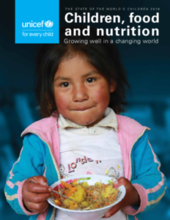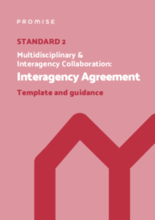Displaying 1771 - 1780 of 4400
The launch of the 2019 Edition of the Minimum Standards for Child Protection in Humanitarian Action (CPMS) will be live-streamed on 15 October 2019.
The Alliance for Child Protection in Humanitarian Action (the Alliance) is organizing its annual meeting in Geneva on 14 and 15 October 2019.
Lumos has issued a Call for Evidence on the links between children’s institutions and human trafficking.
The Special Representative of the Secretary General (SRSG) on Violence Against Children, Dr. Maalla M’jid, presented her first annual report “to define concrete and joint actions at the global, regional, and national levels to keep our promise to children to end violence by 2030," according to this press release from the United Nations.
This edition of The State of the World’s Children report examines children, food and nutrition. It seeks to deepen understanding around the causes and consequences of children’s malnutrition in all its forms and to highlight how governments, business, families and other stakeholders can best respond.
Elevate Children’s Funders Group and Global Philanthropy Project have developed a collection of resources on supporting lesbian, gay, bisexual, transgender, gender expansive and non-conforming, and intersex (LGBTI) youth.
This document offers inspiration and guidance for drafting an interagency agreement which formalises multidisciplinary and interagency (MDIA) team collaboration between agencies involved in Barnahus (a child-friendly, interdisciplinary and multi-agency centre for child victims and witnesses where children could be interviewed and medically examined for forensic purposes, comprehensively assessed and receive all relevant therapeutic services from appropriate professionals).
In this article for the Washington Post, Judith S. Lewis discusses the findings from several studies on separated children in the UK after World War II in relation to the family separation of migrant families in the US today.
In this webinar, 4Children shared an overview of the development and content of the case management package.
The UN Special Rapporteur on the sale and sexual exploitation of children, including child prostitution, child pornography and other child sexual abuse material, in partnership with the UNICEF Office of Research-Innocenti, will hold a two-day expert meeting in Florence to reflect on the current state of play of this problem, its root causes and new manifestations, as well as the relevance and the impact of interventions to eliminate the sale and sexual exploitation of children.


